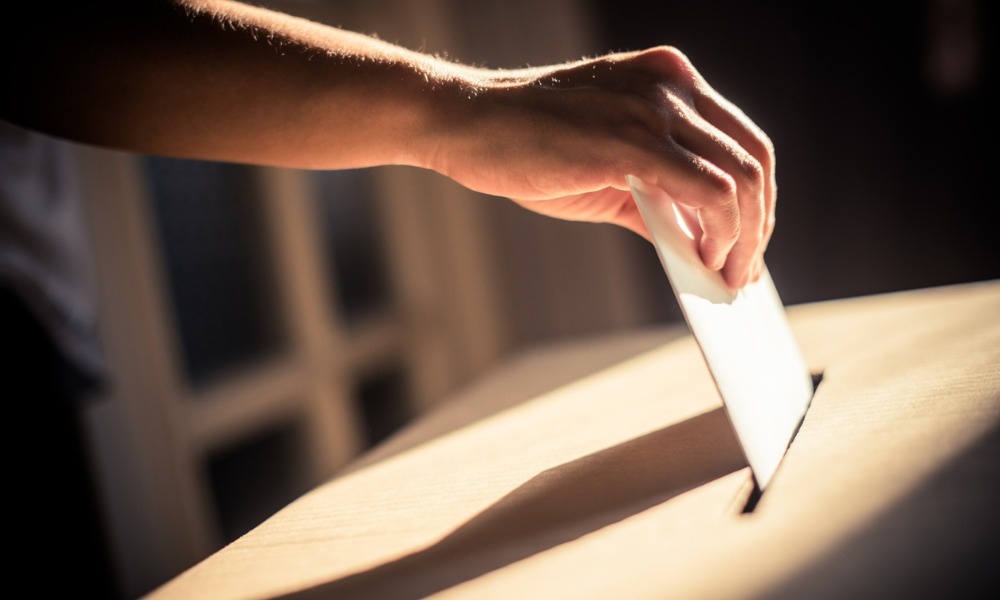Low engagement in the upcoming bencher election could impact the viability of self-governance

The upcoming 2023 bencher election will be a watershed for the legal profession in Ontario. It may see the permanent introduction of party politics at Convocation. It will be judgment day for the current bench, especially the StopSOP slate of benchers who will need to persuade the profession that their strident views on many aspects of the legal profession deserve electoral support and another term. Indeed, there can be no doubt that there will be a concerted effort to turn the StopSOP 22 into a slate of 30 or more, thereby giving them control of the legal profession’s future.
We believe there will be a wholesale turnover in lawyer benchers at Convocation in the next election. So, the question becomes, who will elect the next leadership of the profession, the entire profession or just a small portion thereof? And will we allow any small group with an extreme ideology and goals set the future course of the legal professions in Ontario?
Analyzing the poor turnout rates in recent bencher elections will help to emphasize the critical importance of all lawyers and paralegals voting in the next election.
Political scientists describe voter apathy as the lack of interest among voters and a corresponding lack of participation by voters in the elections of representative democracies. High voter apathy causes poor turnout rates among eligible voters on election day. Several factors contribute to voter apathy. While some people are skeptical about whether their vote matters, others use non-participation to protest against a system that they condemn. Most commonly, apathy results from “satisfaction with the status quo” or “what the law society does has no impact on me” in the legal profession. While we would like to think that this is not what has been causing the low voter turnout we have seen in past elections for Convocation, if that is the reason, then it underscores the need for a substantial increase in turnout next year.
Regardless of the cause, low voter turnout is troublesome for any democracy, especially for those with self-governing bodies, like the LSO. After analyzing the turnout rates of Bencher elections over the last two decades, it is apparent that voter participation has been steadily declining since 1999 and hit an all-time low in 2019. Of the 53,899 lawyers eligible to vote in 2019, only 16,156 cast their ballots. That accounts for only 29.97 percent of eligible voters, down from 33.85 percent in 2011 and 37.12 percent in 2015.
The LSO released a comprehensive study of lawyer participation in bencher elections from 1999 to 2019. They compared voter turnout rates of several different categories, including but not limited to gender, age, year to call, size of firm and region. The data revealed a negative trend in turnout over the past two decades across each of these groups. Notably, the highest voter turnout rate was in 1999, when 42.02 percent of lawyers cast their ballots. The participation rate steadily decreased in the years following. It is important to note that nearly all regions in Ontario experienced reduced voter turnout in the last three elections, proving that voter apathy is a widespread issue throughout the province.
The number of votes it took for some lawyer candidates to be elected in 2019 was marginal compared to the size of Ontario’s bar. In Toronto, where we saw the highest votes, lawyer benchers were elected with as few as 2971 votes. The most votes that a Toronto candidate received was 5017. Similarly, outside of Toronto, the greatest number of votes that a lawyer candidate received was 5184, while the lowest was 1606. For example, I was elected with 3922 votes in Toronto or about 7 percent of Ontario’s lawyers. Ontario’s bar should be concerned about these markedly low turnout rates, especially in light of the results of the 2019 election. We believe that the lack of participation among eligible lawyer voters in 2019 shaped who was elected and led directly to the StopSOP group’s success.
The Statement of Principles which I opposed, has now been replaced. It was a singular issue that appealed to many voters. Today what is at risk is much of the progress made on many equity, diversity and inclusion issues over the past years. Those efforts will be threatened by candidates who are directly opposed to the advancement by Convocation of progressive mandates, enhancements to programmes that will ensure competence and careful planning for the future of the professions. Common sense, practical leadership, and decision-making reflecting the breadth and depth of all professions across Ontario should be the concern of all licensees. Next year, if I run for a third and final term, it will not be as part of the StopSOP slate, a convoy of truck drivers or any party or organized group. I firmly believe that Convocation should include 40 elected individual leaders of the profession guided by their principles and not beholden to others.
In an increasingly politicized climate, all lawyers and paralegals must use their right to vote in the next election to protect the profession’s interests. We entirely agree with Toronto lawyer John Callaghan in his declaration that “the independence of the bar depends on the participation of the bar” and “our independence should warrant more attention by the members of the bar.”
How we arrived at this point and what we can do to get at least half the profession to vote in 2023 are challenges we must tackle in the upcoming year leading to this crucial election. Suppose we fail to do so, and the voter turnout remains small, we will only have ourselves to blame if the election results do not reflect the mainstream of legal professions. We will find ourselves being led down a tortured path towards the end of self-regulation we now know it.
Emily Slessor co-authored this article. She graduated from Queen’s University in 2021 and is now working at Groia and Company as a Legal Assistant. She will be attending Law School in the fall.











